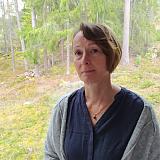
Incorporating a Gender Perspective into Research Promotes Gender Equality in the Bioeconomy
On this page
Promoting gender equality across all sectors of society is an important national and international goal. Achieving equality is also crucial in advancing the bioeconomy and a just green transition. The European Commission's research funding requires the inclusion of a gender perspective in almost all research.
Especially in natural resource sectors, gender roles, norms, and the division of labor between genders, along with related traditions, still prevail. Decision-making in the bioeconomy needs information that acknowledges gender diversity and understands gender as a social construct and a factor that, alongside other factors (age, education, ethnic background, income level), influences an individual's position and opportunities. Additionally, there is a need for information on gendered practices, division of labor, expectations, norms, stereotypes, and policy impacts that hinder the realization of equality. Research and development projects should be designed with gender perspectives in mind.
Gender Perspectives Only Narrowly Included in Bioeconomy Research
The literature review conducted by Luke’s project Gender perspectives in Bio-economy as mirrored in Green and Blue economy sectors explored how the goals of the European Union's gender equality strategy for 2020–2025 have been incorporated into Nordic forest research over the past twenty years.
A large portion of the research focused on gender differences in forestry and forest use, as well as in the values and preferences related to forest management and use. There is a lack of information on the gendered impacts of policies affecting forests and their use (e.g., strategies and legislation) in Finland, as well as on how gender equality has been promoted in forestry organizations, industry, and education. Additionally, there is a need for information on gender-based power relations and gender-based violence and harassment.
The research mainly focused on women, even though the gender perspective also includes men and non-binary individuals. The growth of the bioeconomy presents new challenges and opportunities for promoting gender equality in male-dominated forest and marine sectors. Obstacles faced by women, such as discriminatory workplace norms and lack of support, make it difficult for them to enter and remain in the sector. Effective implementation of gender policy is necessary. The gender perspective also helps to understand the importance of language, thought patterns, communication, and identity in achieving fairness and promoting equality.
Promoting Equality Requires a Broader Inclusion of Gender Perspectives in Research
Incorporating gender perspectives into research highlights the existing gaps in equality: thus, the gender perspective can improve the quality of research, generate new socially or locally relevant knowledge, offer new solutions, and strengthen the just development of the bioeconomy and the green transition. Conversely, overlooking this perspective in research can reinforce existing inequality. In 2024, we organized a webinar for Luke researchers to raise awareness about the importance of the gender perspective at all stages of a research project—from team formation, design, and funding applications, to data collection, analysis, and reporting.
"Incorporating the gender perspective into research is primarily an issue related to the quality of research and societal goals. Therefore, considering this perspective, for example in the Horizon Europe (HE) framework program, is a key part of the evaluation of applications and significantly impacts funding opportunities. Gender equality can serve as a decisive criterion in granting funding. Thus, raising awareness of the gender perspective in the bioeconomy and communicating its significance to Luke researchers was extremely valuable," says Laura Kitti, Director of the Project Center.

